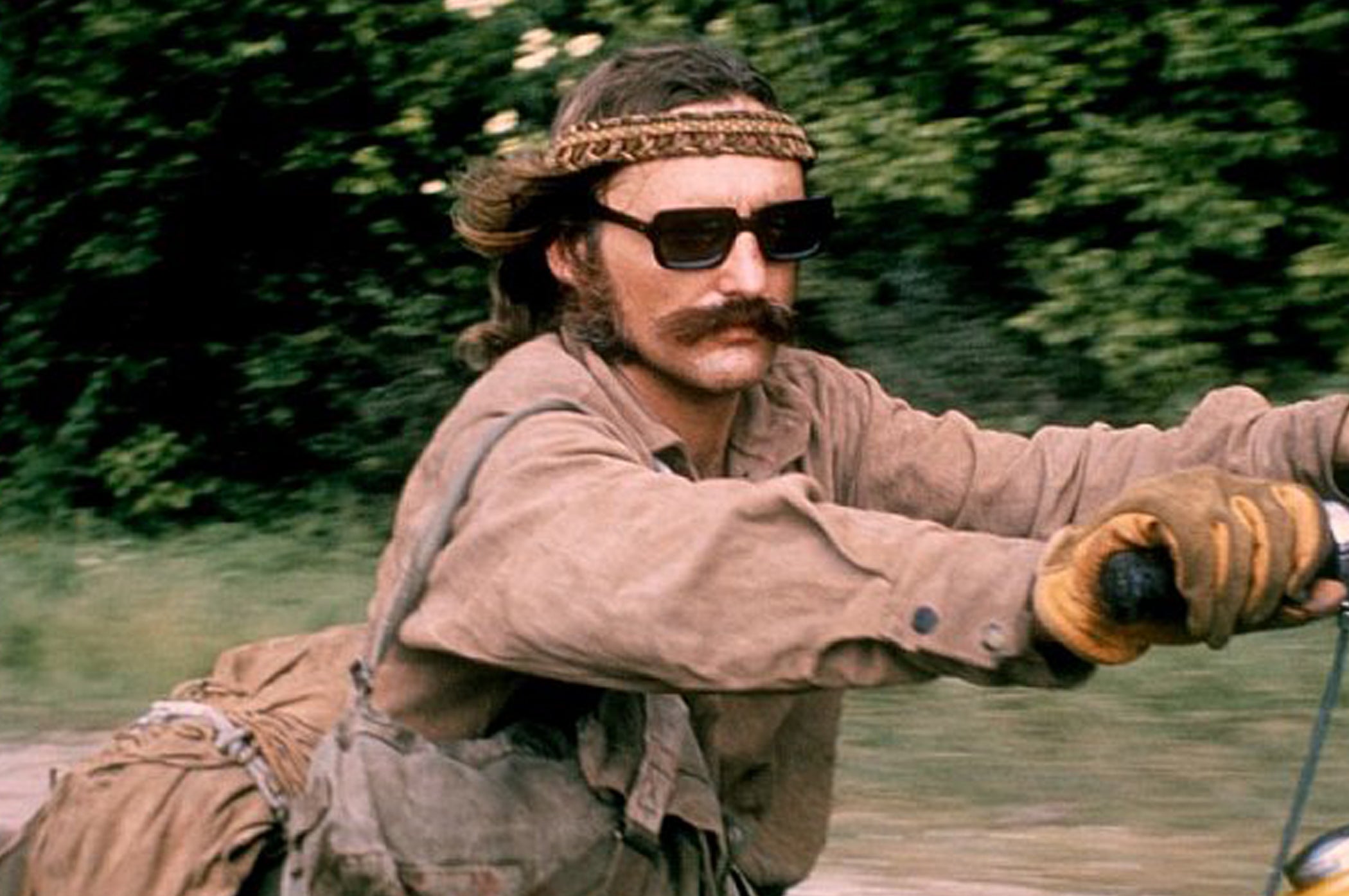

Wyatt and Billy tried to rationalize the death of George with senseless profanity, distorted memories, ravaging sex, social alienation, and moral ambiguity.

“There is joy and humor and sweetness when he smokes grass for the first time and expounds an elaborate theory as to how the Venutians have already conquered the world.”
#BILLY EASY RIDER MOVIE#
“ is completely happy and, ironically, the only person in the movie who seems to have a sense of what liberation and freedom are,” said the New York Times.
#BILLY EASY RIDER FREE#
The scene around the campfire led to their realization that America was not the land of the free or the home of the brave. When George was brutally murdered, Easy Rider could not recover, similar to its two main characters. “As played by Nicholson, George Hanson is a marvelously realized character, who talks in a high, squeaky Southern accent and uses a phrase like ‘Lord have mercy!’ the way another man might use a four-letter word.” “George is a handsome, alcoholic young lawyer of good family and genially bad habits, a man whose only defense against life is a cheerful but not abject acceptance of it,” said the New York Times. George fears that his freedom is in the hands of a radical movement when it is really in the hands of change.

George (Jack Nicholson), an American Civil Liberties Union lawyer, befriends Wyatt and Billy and frees them from prison. It was almost as if they wanted society to resent them as much as they resented themselves. Wyatt and Billy were staged as radicals with their leather jackets, long hair, conspicuous shades, cowboy boots, and overgrown beards. With their destination set on New Orleans, the two buddies confronted alcoholic prisoners, traditional farmsteads, hippie hitchhikers, free love, gateway drug theories, and communes that seemed to be more misleading than the American Dream. Wyatt (Peter Fonda) and Billy (Dennis Hopper) hit the road in search of a new frontier. It would later be stuffed into two California-style choppers and ransomed across the country. A posh Rolls-Royce riding dealer bought the drugs for a large sum of money. Two bikers, one the reincarnate of Captain America and the other a reincarnate of Davey Crockett, smuggled cocaine from the borders of Mexico to inner-city Los Angeles. The road stood as a tableau for freedom a terrain yet to be discovered. It formed a spectacle that was breathtakingly alluring. Narrow highways collided with a distant blue sky, rusty telephone poles stood amidst vast deserts, motorcycles were hidden behind a cloud of dust and debris. There was a cinematic reliance on the landscape to establish the direction of the film. Road cinema was known for its dissolute men who become buddies over the duration of their adventures. Road cinema was categorized as coming-of-age films focused more on the journey than the destination.Įasy Rider documented the Hippie movement, rampant narcotic sales, and faux utopian communes that came into fruition in the 1970s. It used heterosexual couples, displaced families, and masculine fantasies to forge episodic escapes.

Early road cinema was influenced by that French New Wave. The French New Wave promoted a revolutionary experimentation with editing, conscious rejection of literary tradition, aesthetic documentary styles, and narrative ambiguity. The road movie documented the rise of counter-culture in a way that dated Westerns, Hollywood heroes, or European art films could not. At the essence of the cult classic, Easy Rider, was a tension between long-standing tradition and ever-changing modernity. Conflicts within human consciousness took place between conservative values and rebellious desires. Ever since Jack Kerouac wrote On The Road, America fell in love with the splendor, rebellion, and adventure associated with road cinema.


 0 kommentar(er)
0 kommentar(er)
